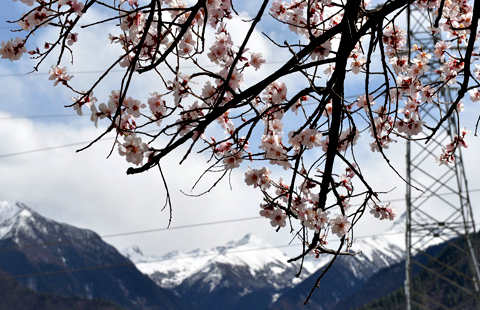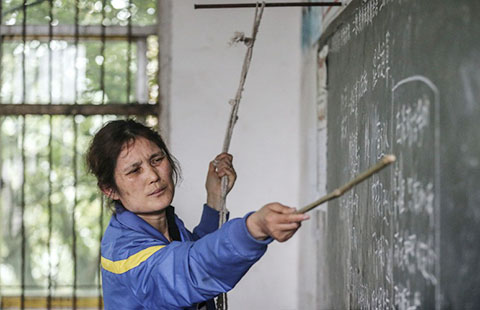Li backs firms' global vision
Updated: 2015-04-04 09:02
By ZHAO YINAN(China Daily)
|
||||||||
China is to pilot the removal of preconditioned government approval for offshore corporate bonds, part of a national arrangement to lower the financing cost of enterprises expanding overseas.
The move, along with the government's efforts to speed up the growth of China-funded financial institutions and introduce more long-term export credit insurance, will make it easier for Chinese companies to get credit by mortgaging overseas assets, help them manage risks and hence facilitate the export of excess but advanced industrial capacity to countries in need of upgrading.
The decisions, among other policies to advocate domestic companies exporting industrial capacity such as steel, cement and railway manufacturing, were made at a meeting chaired by Premier Li Keqiang on Friday, after Li listened to complaints from corporate leaders of rail and nuclear power companies.
Many of the complaints concerned lending difficulties amid global expansion plans and government red tape in project approvals.
Li, describing the export of industrial capacity as an important aspect to support economic restructuring, reaffirmed the government's resolve to scrap preconditioned government approval for outbound investment to ease restrictions.
Under the current regulations, companies must obtain government approval for such deals, even though they have already reached an agreement with foreign firms.
"As we expand the export of commodities, we will also step up the export of industrial capacities ... in a move to counteract economic downward pressure at the same time upgrading the facilities of other countries," Li said.
China became a net capital exporter for the first time in 2014, with overseas direct investment surpassing foreign direct investment. Its foreign investments have increased at more than 15 percent on an annual basis over the past five years, according to the Ministry of Commerce.
Li's administration has been trying to export more production capacity, especially in rail construction, as the economy is being burdened by such excess from a leftover of the stimulus package to cushion the 2008 financial crisis.
China's two leading rail equipment manufacturers reported all-time high profits for 2014 on Monday, with an annual increase in sales of more than 20 percent, amid intense efforts by the Chinese government to export the equipment to developing markets, including South Asia, Africa and parts of Europe.
Zhao Zhenhua, an economist at the Party School of the CPC Central Committee, said the initiative to expand overseas is in line with the Belt and Road Initiative, and it can stabilize growth as the country further opens up.
Zhao said he expects a detailed plan to help mitigate the excess capacity and boost overseas investment.

 Ancient 'Xiangshi' kicks off in Wuzhen
Ancient 'Xiangshi' kicks off in Wuzhen
 Off the beaten path: China's top 'surf' breaks
Off the beaten path: China's top 'surf' breaks
 Across America over the week (from March 27 to April 2)
Across America over the week (from March 27 to April 2)
 Where eagles still soar
Where eagles still soar
 Top 5 cooperation priorities in the Belt and Road Initiative
Top 5 cooperation priorities in the Belt and Road Initiative
 10 destinations for a Qingming outing
10 destinations for a Qingming outing
 'Silk Road' captured in planted field
'Silk Road' captured in planted field
 Teaching on a rope
Teaching on a rope
Most Viewed
Editor's Picks

|

|

|

|

|

|
Today's Top News
Xi plants roots of green awareness
Li backs firms' global vision
China to standardize energy conservation by 2020
China checkmates US on Asia bank
Policy helps China to urbanize
Curbing 'brushing' difficult: report
Conflict not inevitable: Joseph Nye
Obama: Iran framework could make world safer
US Weekly

|

|







